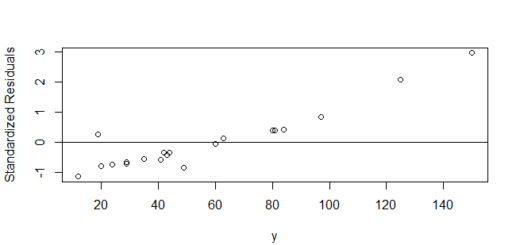Log Rank Test in R-Survival Curve Comparison
Log Rank Test in R, the most frequent technique to compare survival curves between two groups is to use a log-rank test.
Test hypotheses:
Ho: In terms of survivability, there is no difference between the two groups.
Hi: There is a survival differential between the two groups.
We can reject the null hypothesis and infer that there is enough evidence to claim there is a difference in survival between the two groups if the p-value of the test is less than 0.05 (95% confidence level).
LSTM Network in R » Recurrent Neural network »
In R, we can use the survdiff() function from the survival package to do a log-rank test, which has the following syntax:
survdiff(Surv(time, status) ~ predictors, data)
The Chi-Squared test statistic and related p-value are returned by the above function
log-rank test in R.
Following libraries are required for the analysis.
library("survival")
library("survminer")
library("Rcpp")The lung cancer data was utilized from the survival package.
Linear optimization using R » Optimal Solution »
data("lung")
head(lung)inst time status age sex ph.ecog ph.karno pat.karno meal.cal wt.loss 1 3 306 2 74 1 1 90 100 1175 NA 2 3 455 2 68 1 0 90 90 1225 15 3 3 1010 1 56 1 0 90 90 NA 15 4 5 210 2 57 1 1 90 60 1150 11 5 1 883 2 60 1 0 100 90 NA 0 6 12 1022 1 74 1 1 50 80 513 0
Type the following code to compute survival curves:
fit <- survfit(Surv(time, status) ~ sex, data = lung) print(fit)
Call: survfit(formula = Surv(time, status) ~ sex, data = lung) n events median 0.95LCL 0.95UCL sex=1 138 112 270 212 310 sex=2 90 53 426 348 550
The sort summary table can be accessed based on the below code
Linear Discriminant Analysis in R » LDA Prediction »
summary(fit)$table
records n.max n.start events *rmean *se(rmean) median 0.95LCL 0.95UCL sex=1 138 138 138 112 325.0663 22.59845 270 212 310 sex=2 90 90 90 53 458.2757 33.78530 426 348 550
Visulization
The following code allows us to understand the survival curves in a better way.
ggsurvplot(fit,
pval = TRUE, conf.int = TRUE,
risk.table = TRUE, # Add risk table
risk.table.col = "strata", # Change risk table color by groups
linetype = "strata", # Change line type by groups
surv.median.line = "hv", # Specify median survival
ggtheme = theme_bw(), # Change ggplot2 theme
palette = c("#E7B800", "#2E9FDF"))
The survival chance is 1.0 at time zero (or 100 percent of the participants are alive).
At time 250, the chances of survival for sex=1 are about 0.55 (or 55 percent) and 0.75 (or 75 percent) for sex=2.
The median survival time for sex=1 is 270 days and for sex=2 is 426 days, indicating that sex=2 has a better survival rate than sex=1.
The following code shows how to perform a log-rank test to determine if there is a difference in survival between sex who received different treatments:
Decision Trees in R » Classification & Regression »
Perform log-rank test
surv_diff <- survdiff(Surv(time, status) ~ sex, data = lung) surv_diff
Call: survdiff(formula = Surv(time, status) ~ sex, data = lung) N Observed Expected (O-E)^2/E (O-E)^2/V sex=1 138 112 91.6 4.55 10.3 sex=2 90 53 73.4 5.68 10.3 Chisq= 10.3 on 1 degrees of freedom, p= 0.001
The Chi-Squared test statistic is 10.3 with 1 degree of freedom and the corresponding p-value is 0.001. Since this p-value is less than 0.05, we reject the null hypothesis.
In other words, we have sufficient evidence to say that there is a statistically significant difference in survival between the two groups.




